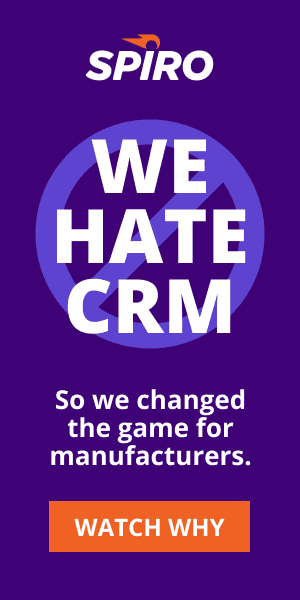Sales and the Paradox of Choice
Have you ever been in a retail store and noticed that there is an overwhelming number of choices available? Then have you, after much debate, made your decision, gone home and felt like you probably should have picked something different? Interestingly enough, having more choices appears to leave people feeling less satisfied. This is known as the paradox of choice.
In fact, The Atlantic discusses “choice overload,” a concept penned by Barry Schwartz, where we are less pleased with our own decisions, doubting them even, whenever we are inundated with options. Apparently, this plethora of choices creates perfectionist attitudes and self-deprecating behavior. If we make the wrong decision, we think there is something wrong with us. He advises then, that people learn to settle for good enough (becoming “satisfiers”) because research shows higher degrees of happiness therein!
Limit Customer Options
From a sales perspective this information is invaluable. We need to realize that slamming our customers with a product list a mile long will probably make them want to run the other direction. This is not to mention the anxiety found in trying to review that self-same list. Too much time is invested in trying to muddle through pages and pages of product.
So, one of the best things you can do for your client is listen, and listen well. Then, since you know the product catalog, make three suggestions that align with your individual customer’s needs. This will alleviate their stress and save everybody time. In fact, if you can narrow the choices to two, you are reaching optimal deal potential!
Know the Competition
Take the time to be just as familiar with the competitions’ product list, as you are with your own. Know why your client will benefit from your products more than the competitor’s. In reality, you can’t adequately discern how many other people your client is talking to. There might be a large list of bidders.
When you realize that you are on a 7 deep “short list,” make a decision to present only one option. Your potential client will understand immediately what you can and cannot offer, and will be prepared to make an educated and rapid decision on your continued participation in the bidding competition. You will save yourself a lot of time and money this way too.
Become a Trusted Advisor
Barry Schwartz talked about “maximizers,” people who want the best thing out there. If your client is a “maximizer,” you might do well to present the concept of the paradox of choice to him. That customer wants the absolute best product available but even when he gets it, he probably won’t be satisfied as he will begin to doubt his own decisions.
This has been documented and therefore, if you share the information with your clients, you might actually build a deeper bond than the basic sales relationship. They’ll see you as someone who’s concerned with their well-being and is educated in a way they’ve probably never even considered. You will add value to your product because you’ll take the trusted adviser position they’re really looking for!
Drop the Potential Complainers
Now, this might sound a bit odd, but if you buy into Schwartz’s theory, and have actually seen it in play, then you might consider dropping those potential clients who are gorging themselves on options. Schwartz says they’ll be dissatisfied anyway. So, even if you sell them the best option you’ve got, they’re going to second guess it later. Who needs dissatisfied customers? Drop them before they become potential complainers.
The paradox of choice might very well be a radical thing to consider and yet, if we evaluate our own buying experiences, we can see the maximizer, or satisfier, in us. Help your customers understand the concept and you will be providing them not only with a valuable product (yours) but a lesson that’s invaluable to a happier, more satisfied and enjoyable life.
Photo courtesy of Unsplash user Monstruo Estudio.

